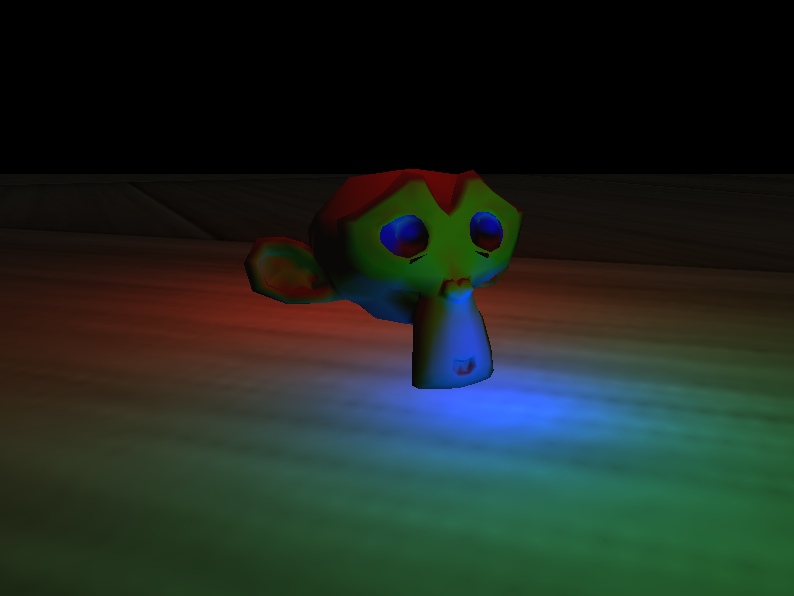We got monkeys!
Yep, we do have monkeys. Blender monkeys, to be exact. I whipped up a simple loader for Wavefront OBJ models. Only loads the basic geometry now, so I have to work on the material stuff. One problem is my lack of a shader that does more advanced illumination, so that's something I have to work on. The two screenshots I've posted only do per-pixel lighting with Lambertian reflectance. I also want to make it so that my OBJ loader doesn't reproduce vertices with the same position + normal + texture coordinates.
I have also gotten things working with Cocoa. I do the event loop myself to make things easier, but it's all good. Full screen mode works in Cocoa too, but not in X11 / Win32 because I haven't had the chance to do so yet. And with Cocoa I'm briefly gonna bring up the PIMPL pattern and how I made use of it.
The private implementation (PIMPL) pattern is a way of hiding an implementation from translation units other than the translation unit that implements some class. This is possible because you can have a class member that is a pointer to a type that has only been forward declared.
So why did I need this? Well I needed to store Objective-C pointers (i.e., NSWindow *) in my Window class. The
problem here is that everything works wonderfully in Objective-C files, but everyone else chokes when including Window.h
because they get confused by the Objective-C code in <Cocoa/Cocoa.h>. I couldn't really forward declare these
Objective-C classes either, because again I have the same problem: Objective-C in a C++ file just doesn't work (as far
as I know?). Enter the PIMPL. I forward declare a struct that will hold these Objective-C pointers and define that
struct in my Objective-C implementation of the Window class. Problem solved, whahay!
